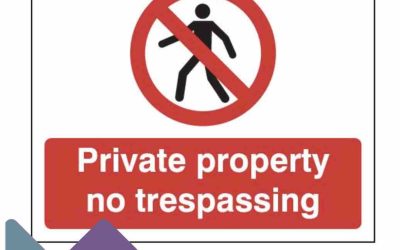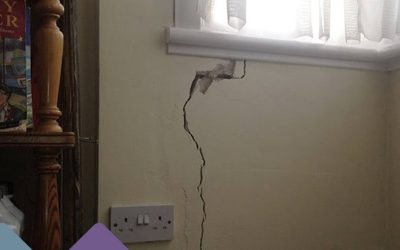Thank you for clicking on this week’s property survey blog post. Here at Stokemont, we take great pride in preparing these regular and topical posts with the aim of keeping the public and our clients fully informed on surveying matters.
In today’s post we are going to be discussing licence for alterations procedures and the requirements that the leaseholder (the legal owner of the property) needs to go through if they’re planning on undertaking alterations works to their leasehold property.
If you’re an owner of a leasehold property, you’re commonly referred to as a leaseholder or a tenant under the Landlord and Tenant Act 1954. This Act effectively manages the wider realm of your property and your property lease.
For those leaseholders that may not be aware of the specifics of a lease, the lease will set out the legal requirements and procedural aspects that the leaseholder (or tenant) are duty bound and responsible to adhere to and follow.
One of these responsibilities is the provisions and procedural aspects that surround alterations that the leaseholder is planning on undertaking to their property.
Under the majority of all leases, alterations refer to any construction work that is planned to the property.
The property lease will very much govern the specifics of the works and will ultimately require that the leaseholder engage and communicate with the freeholder (or landlord) in advance of commencing these works, during the works, and post works.
Generally speaking, these works can include:
- Changing Floor Coverings
- Changing Kitchen & Bathroom Location
- Alterations to Services
- Layout Changes
- Window Changes
The licence for alterations procedures will ensure that the envelope of the building is taken into account through the eyes of the leaseholder’s work.
Importantly, it will also ensure, that the neighbouring properties and leaseholders (tenants) are considered with the ultimate aim being to reduce the short term nuisance that comes with construction work. While also ensuring that there are no long-term “knock on” nuisances or effects resulting from the planned works.
Licence for alterations procedures can often be an unknown and ill considered part of a leaseholder’s construction work proposals, and in many cases leaseholders can find themselves incredibly surprised with having to go through the licence for alterations procedures.
It’s worth bearing in mind that the licence for alterations procedures are ultimately in place to reduce and minimise the effect of the proposed construction works.
In almost all circumstances so long as the licence is administered fairly, reasonably and at an arm’s length, it is unlikely that the freeholder (landlord) will dispute or refuse a leaseholder’s request for their planned alterations.
The leaseholder’s ability to undertake the proposed works will usually very much be governed by the type of lease covenant that is present within the lease.
There are three different types of lease covenants that are common at least our properties in the England and Wales:
Fully Qualified Covenant
A fully qualified covenant is the most beneficial lease clause and effectively means that so long as the leaseholder goes through the necessary procedural aspects ensuring that the risks associated with their works are as low as they can possibly be, the freeholder will give consent for the alterations, with that consent not being unreasonable withheld.
In a nutshell, this affectively means that so long as the leaseholder approaches the matter methodically and carefully, the freeholder is going to give them the licence to commence and undertake the works.
Qualified Covenant
A qualified covenant is similar to a fully qualified covenant, albeit it’s worth noting that the freeholder does not need to give the leaseholder consent for the works, with the consideration surrounding the consent not having to be in anyway reasonably considered.
In a nutshell, this effectively means that the freeholder can if they so choose, refuse the leaseholder’s proposals and in doing so don’t need to justify or validate the refusal.
Here at Stokemont, we’ve seen this consent usually be at the levy of a premium, license fee, or cash payment from the leaseholder to the freeholder.
Absolute Covenant
And absolute covenant is the least favourable lease clause and significantly and heavily restricts the leaseholder’s proposals to undertake the proposed works.
In a nutshell it’s affectively means that the freeholder is unlikely to give the leaseholder the legal consent to undertake the works.
Should they opt to deviate from that and give consent, they carry a risk whereby they could effectively be sued by any other leaseholders within the building.
Licence for alterations procedures on the face of it are a relatively simple process, however here at Stokemont over the years we’ve seen all forms of hurdles and barriers come into play during their agreement.
We would therefore advise that prior to undertaking works and embarking on the procedures, both the leaseholder and the freeholder carefully consider and approach the alterations requirements with the input of a qualified and experienced surveyor.
If you’d like to discuss your licence for alterations proposals and works with our team of qualified and experienced surveyors, give us a call today and we will be more than happy to assist you.
Did you know that we also offer 30 minutes free no strings advice, you can take us up on this in our Baker Street office, via a video call, or for the more conventional buyer a telephone call. Give us a call today and we will be more than happy to advise.




